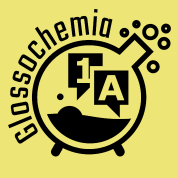This month the kick-off meetings of the three projects I’m involved in have taken place. It’s been my first time witnessing the birth of a European project and here are some details for those who never got to be a chemist, but are interested about how research works.
After several months of planning and writing the project, of contacting research groups from other countries and lots of legal papers, funding is granted and a two or three-day meeting is organized. The heads of the partner research groups travel to the organizer’s country to attend the official presentation of the project, of each partner and some debate sessions to set the practical details and procedures. English is the language used—a fact that would deserve its own post.
Should the project be well defined and the orators be eloquent, the presentation of the work packages will be clarifying and useful—good luck with that. The debates help understand the objectives and identify the people who will keep repeating the same annoying petitions and complaints during the whole process.
![A sacrifice in favour of science [image: Open Network Lab]](https://oscarazal.files.wordpress.com/2014/02/sopar-terrassa.jpg?w=400&h=266)
However, a kick-off meeting is not only about wit, dresses and ties; it’s also about meals at expensive restaurants where plates are sprinkled with some grams of what’s been ordered. That’s what I’d change. I’d take the researchers to any typical restaurant, where your money is worth and your stomach is pleased. And organizers will complain about the cost of the event, they won’t nevertheless change to humbler establishments or give up the coffee breaks with canapés.

3 thoughts on “The birth of European research projects”